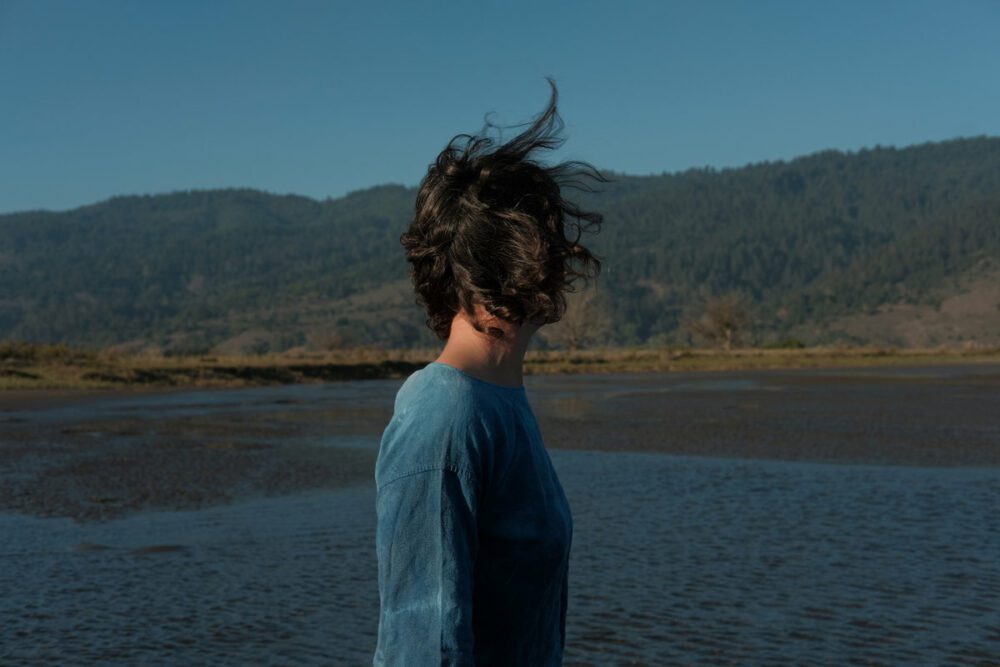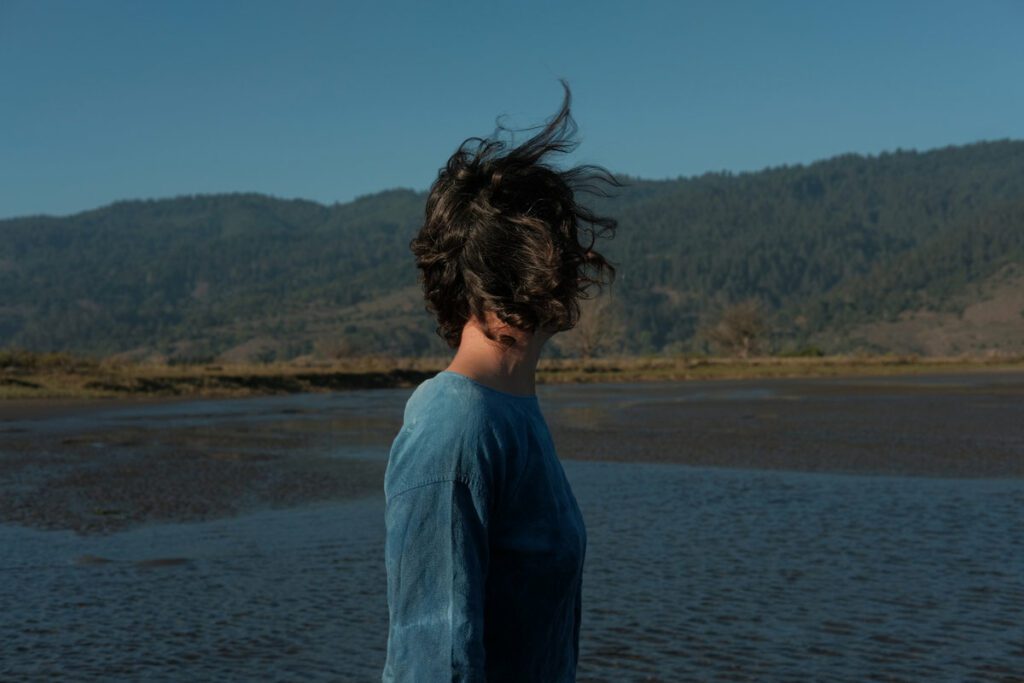

As we reach the year anniversary of the pandemic and all of the disarray it has brought into our lives, people have begun to reflect on how it’s changed them. One such person is Bay Area singer-songwriter Kelly McFarling, who released her latest LP Deep The Habit on March 12. She recorded the album pre-COVID but chose to delay the release until now. Rather than worrying about how some of the original meaning might be lost, however, she hopes that it has become all the more poignant; calling Deep The Habit “a very beautiful time capsule of this group of people who I really miss a lot,” McFarling admits that although so much has changed, “it feels nice to celebrate it right now.”
The delightfully mellow collection of ten songs is welcome in this new paradigm, comforting in its warmth and its new spin on old classics. McFarling intended for the record to sound like a feminine take on J.J. Cale or Dire Straits. She felt “like there was a little gap in that canon,” saying, “I wasn’t hearing a lot of female voices within that realm, and I kind of wanted to have more of a female-fronted version of that.” But McFarling infuses this traditionally masculine, bluesy-Americana sound with softness and vulnerability, giving us something refreshing and honestly soothing. Moments of pop sheen, like the hook on “Birds,” give the record a touch of witchy Stevie Nicks cool, and McFarling’s refinement of her folk sound on previous records (like 2017’s Water Dog, 2013’s Ridgeline, and 2010 debut Distractible Child) calls to mind Hiss Golden Messenger or Molly Sarlé.
There’s a lushness to Deep The Habit, one born of McFarling’s effort to highlight the talent of the musicians she has playing in her band (Tim Marcus on pedal steel, Oscar Westesson on bass, Nick Cobbett on drums, Andrew Brennan on guitar, and Brittany Powers on backing vocals). “I think it’s kind of an evolution we’ve been doing, of folk music into a more lush, rock album,” she explains. “More instrumentation, more complex arrangements for a band. My previous album was a lot more stripped down, in a folk realm. [On Deep The Habit] I was going for something that would really showcase the band that I’m playing with right now.”
She names family as the major theme of the album, but notes that the word has many connotations – “questions about family, about whether or not to have a family… the family I’m building in my life.” On a more macrocosmic level, the theme of “family” as it relates to humanity in general (and the demise of our planet as we know it) haunts the listener as McFarling croons “Am I the last of my kind?” over and over on the hook of “Last of My Kind.” “I think another major theme is connection to the natural world, and having that tie into family as being a citizen of the planet and the changes that are happening there – just feeling a lot of sadness about that,” she says.
These musings on family and humanity are more poignant in March 2021 than they ever could have been in early March 2020; many of us are at a point where we’ve never gone so long without seeing our families and loved ones, while having also been robbed of the daily interactions that instill our lives with a sense of familiarity and comfort. McFarling acknowledges this, saying, “It is interesting to me how many of those themes were coming up, and maybe even being foreshadowed before this all happened. I’m sure people will perceive it differently based on the pandemic, but it was all [written] before.”
This consideration makes the idea of a time capsule all the more dynamic, something living inside us and changing with us, as opposed to something buried deep in the ground. The resentments and frustrations we might have felt of those close to us maybe don’t glare the same way they used to, in the absence of these same people. And alternatively, the joy and pleasure we felt in their company becomes all the more precious and golden in hindsight.
The concept of family has become more dynamic for McFarling in this time as well, as it relates to her relationship with her partner, co-producer, and guitarist Andrew Brennan. Quarantined together, they’ve begun to collaborate musically more than ever, though she emphasizes that he already was a major part of Deep The Habit. “Andrew is one of the major evolutions of this record we’re about to put out as well, because he has a huge part in the arrangement and some of the writing, getting it ready for this big band,” she explains. “I feel like the record we’ve been making during quarantine has been the next step in that collaboration.”
While some bemoan long empty hours and too much togetherness, McFarling basks in the positive aspects of it. “I tend to get inspired when things are a little foundationless and tricky, so this time has been ripe for that,” she says. “My husband and I are stuck in a house and we are using that time to write songs together, which has been really beautiful.”
She heads back into the studio to record another album in May, noting how weird it is to be recording and releasing an album at the same time, no album cycle, no tour. More than anything else, she wants the listener to take from this album its overarching joy, despite its deep themes and sometimes melancholy sound. “I think a lot of that has to do with the band and how joyful it was to play music together. You can hear that in the way that these songs came out,” she says. “The joy that comes through in the record makes me appreciate that we got to do that. I know that we’ll get to do it again, but not getting to do it, and then hearing the songs, and hearing the sounds together is bittersweet – but also hopeful for me.”
In the end, that’s all any of us can do when life throws us the unexpected – try not worry about what’s out of our control and find joy in what is. Kelly McFarling sums it up nicely on album track “Just As Small”: “You can see just how small you really are/While we aim for what is coming/And we ache for what is gone.”
Follow Kelly McFarling on Facebook and Instagram for ongoing updates.

